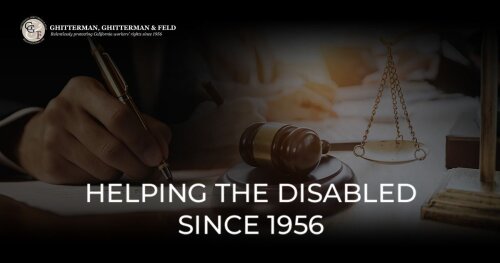Best Pension Lawyers in Vermont
Share your needs with us, get contacted by law firms.
Free. Takes 2 min.
Or refine your search by selecting a city:
List of the best lawyers in Vermont, United States
About Pension Law in Vermont, United States
Pension law in Vermont governs retirement benefits for both public and private employees. Pensions provide financial security by ensuring a stream of income after retirement from employment. In Vermont, pensions can be offered by state and local governments for public employees or by private-sector employers under federal and state regulations. Additionally, residents may qualify for Social Security retirement benefits. Understanding the rules surrounding contributions, vesting, eligibility, and distribution of pension funds is essential for protecting your retirement income. The state of Vermont follows both the federal Employee Retirement Income Security Act (ERISA) for private pensions and specific provisions for public pension plans like the Vermont State Retirement System.
Why You May Need a Lawyer
Legal assistance in pension matters is often crucial. People may require a pension lawyer when facing denial of benefits, errors in payout calculations, disputes over beneficiary designations, or issues with plan portability after changing jobs. Sometimes, individuals need advice on dividing pension assets during a divorce or have concerns about pension reductions, changes in employer policies, or allegations of mismanagement by pension administrators. If you are a public employee, you may also encounter complex regulations unique to Vermont's public pension systems. Additionally, anyone considering early retirement or making withdrawals should seek legal counsel to avoid penalties and ensure compliance with both state and federal laws.
Local Laws Overview
Vermont pension law intersects with federal law, primarily ERISA, which sets minimum standards for most private retirement plans. In Vermont, public pensions, such as those for teachers, state employees, and municipal workers, are managed under statutes like Title 3 (State Employees Retirement System), Title 16 (Vermont Teachers’ Retirement System), and Title 24 (Municipal Employees Retirement System) of the Vermont Statutes. These laws cover contribution requirements, benefit calculations, vesting periods, survivor benefits, disability pensions, and more. Vermont also has specific protections for spouses concerning survivor benefits and procedures for resolving disputes over pension entitlements. Pension plans must regularly report their financial health and are subject to oversight to ensure solvency and fair management.
Frequently Asked Questions
What is a pension?
A pension is a retirement plan that provides regular, predetermined payments to retired employees, usually based on their years of service and salary history.
How do I know if I am vested in my Vermont pension?
Vesting refers to the right to receive benefits from a pension plan. Most Vermont public pension plans require you to work a minimum number of years, such as five, to become vested. Private plan vesting can vary but must meet federal requirements.
Are Vermont public pensions affected by federal law?
While Vermont public pensions are governed by state law, some federal laws, such as tax rules, may apply. However, federal ERISA standards typically do not govern public employee plans.
What happens to my pension if I change jobs?
This depends on the type of plan and whether it is portable. Some public plans allow you to transfer or roll over benefits to another qualifying plan, while private plans may offer a lump-sum payment or may require you to leave your benefits until retirement age.
Can my pension benefits be reduced or lost?
Pension reductions can occur due to plan underfunding or changes in the law, but there are protections in place. Private plan participants may have some insurance through the Pension Benefit Guaranty Corporation. Always confirm with your plan administrator.
How are pensions divided in a divorce in Vermont?
Pension benefits earned during marriage are typically considered marital property and are subject to division in divorce. This may require a Qualified Domestic Relations Order (QDRO) for private plans or appropriate state documents for public plans.
What should I do if my pension benefit is denied?
If your pension claim is denied, review the plan's appeal process and gather supporting documents. You may need to file an appeal or seek legal counsel to resolve the dispute.
Is there a difference between a pension and a 401(k) in Vermont?
Yes. A pension provides guaranteed payments for life, while a 401(k) is a defined contribution plan where retirement benefits depend on your contributions and investment performance.
Are survivor or spousal benefits available with Vermont pensions?
Most Vermont public and private pensions offer survivor or spousal benefits, but you may need to elect these options. Specific rules vary by plan, and legal advice may be required in cases involving divorce or remarriage.
How can I check the health or status of my pension plan?
Public pension plans in Vermont publish annual reports on funding status. Private plan participants can request summary annual reports from their administrators. Financial health impacts long-term benefit security.
Additional Resources
Several organizations and government bodies can provide information or assistance regarding pensions in Vermont:
- Vermont Office of the State Treasurer - Oversees public retirement systems and provides plan information for state employees, teachers, and municipal workers.
- Pension Benefit Guaranty Corporation - Protects participants in private pension plans in case of employer insolvency.
- Vermont Department of Labor - Offers information and referrals regarding retirement benefits and disputes.
- Legal Services Vermont - Provides free or low-cost legal assistance in pension and benefits issues for eligible residents.
- United States Department of Labor Employee Benefits Security Administration - Guides participants in private employment pension plans regarding rights and claims.
Next Steps
If you believe you need legal help regarding your pension in Vermont, start by gathering all relevant documents such as your plan summary, annual statements, correspondence, and your employment records. Contact your plan administrator for a clear explanation of your benefits and any issues or denials. If questions remain or you face a dispute, consult a Vermont attorney experienced in pension law. They can advise you on state and federal regulations, help you file appeals, represent you in negotiations, and ensure you receive the retirement benefits to which you are entitled. Consider reaching out to the resources listed above for additional guidance or referrals to qualified legal professionals. By acting promptly and seeking expert assistance, you can safeguard your retirement income and navigate any legal challenges with greater confidence.
Lawzana helps you find the best lawyers and law firms in Vermont through a curated and pre-screened list of qualified legal professionals. Our platform offers rankings and detailed profiles of attorneys and law firms, allowing you to compare based on practice areas, including Pension, experience, and client feedback.
Each profile includes a description of the firm's areas of practice, client reviews, team members and partners, year of establishment, spoken languages, office locations, contact information, social media presence, and any published articles or resources. Most firms on our platform speak English and are experienced in both local and international legal matters.
Get a quote from top-rated law firms in Vermont, United States — quickly, securely, and without unnecessary hassle.
Disclaimer:
The information provided on this page is for general informational purposes only and does not constitute legal advice. While we strive to ensure the accuracy and relevance of the content, legal information may change over time, and interpretations of the law can vary. You should always consult with a qualified legal professional for advice specific to your situation.
We disclaim all liability for actions taken or not taken based on the content of this page. If you believe any information is incorrect or outdated, please contact us, and we will review and update it where appropriate.
Browse pension law firms by city in Vermont
Refine your search by selecting a city.










